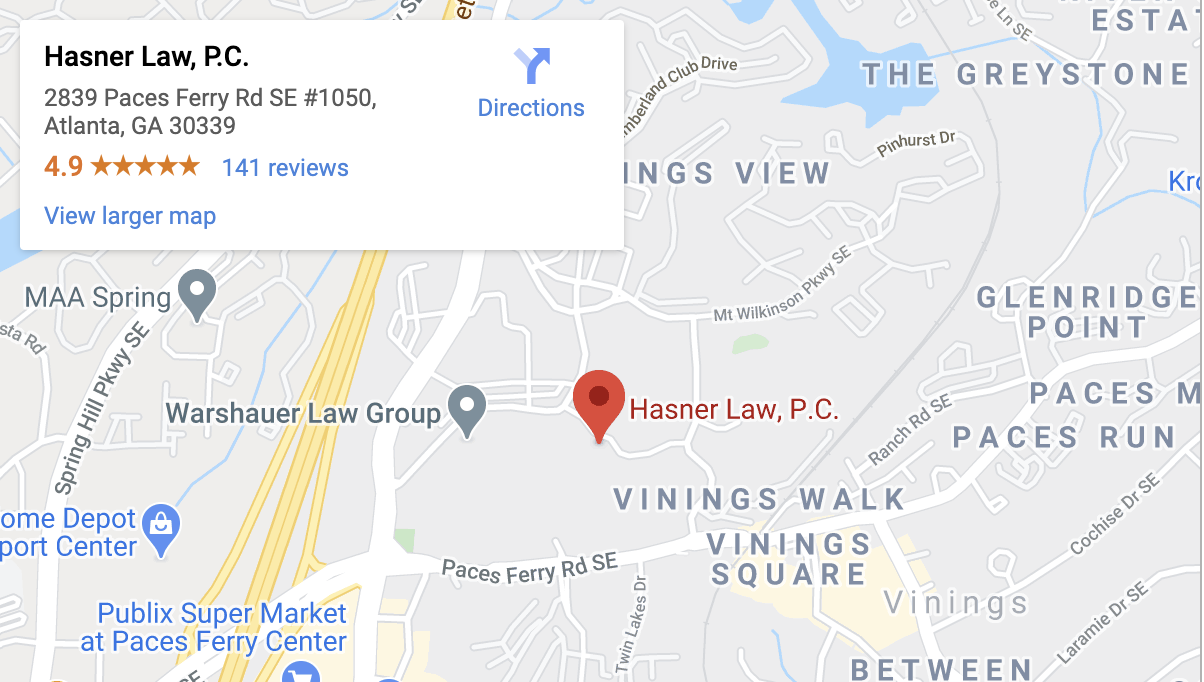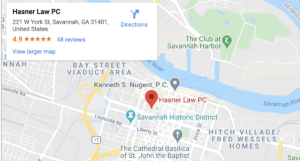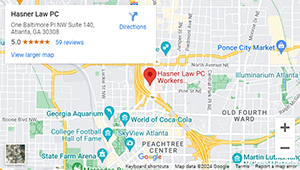Atlanta Dog Bite Lawyer

Have you been bitten by a dog? If yes, then contact Hasner Law Injury & Workers’ Compensation Attorneys and schedule a time to discuss your injury case in more detail. You may be entitled to compensation. Our Atlanta dog bite lawyers have over 50 years of combined experience and are available 24/7 to assist you.
Your first consultation is free, so give us a call at 678-888-4878 or reach out to us online today.
How Can a Personal Injury Lawyer Help Me After a Dog Bite?
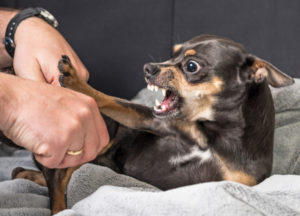
If you were bitten by a dog, you may be entitled to financial compensation under Georgia law. While the amount you can receive will depend on the circumstances of your case, sometimes dog owners have insurance policies that cover these types of injuries.
For that reason, it’s important to have an Atlanta personal injury attorney on your side that can work with these companies and either negotiate a settlement or take your case to trial.
Owner’s Liability for Injuries Caused by a Dog
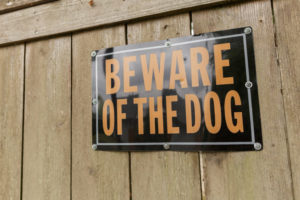
Many states have what are known as “one-bite” laws. This means that an owner isn’t automatically liable for harm caused by a dog if the dog hasn’t attacked anyone before. Georgia doesn’t have a one-bite law. It does, however, have a modified one-bite rule.
What Does Georgia Law Say If There’s No One-Bite Rule?
The state of Georgia specifies when an owner will be liable for injuries caused by a dog, including dog bites or attacks. Owners of a “vicious or dangerous” animal of any kind are responsible for any injuries caused by the dog if they allow the animal to roam free, or carelessly manage the animal.
To determine whether an animal is vicious or dangerous, the law presumes it to be vicious if there is a city ordinance requiring the animal to be on a leash or at heel, and the dog is off leash when the bite occurs. Note that in Atlanta, dogs are always required to be on leash in any public space, except for dog parks.
This means that breed type is not relevant in determining whether a dog is considered vicious or dangerous under the law. Further, the law does not require there to be any prior incidents of bites or aggression. As long as there was a leash law and the owner violated it by having the dog off leash when the bite occurred, the statute imposes liability on the owner.
Provocation Could Bar a Financial Recovery
However, keep in mind that if the victim provoked the injury, the owner would not be liable. So, if someone taunted the dog and was bitten as a result, this would not be the owner’s responsibility.
Negligence Can Be Grounds For a Dog Bite Lawsuits in Georgia
Keep in mind that if you were in a place where a dog did not have to be on a leash, such as a dog park or in someone’s private home, you would have to show that the owner was negligent. Negligence means that the person failed to act reasonably under the circumstances.
An example of negligent behavior might be if an owner knew that their dog was aggressive and allowed it to roam free at a party. By contrast, simply being bitten at a dog park without any other evidence that the owner acted unreasonably, is not enough to hold the owner liable.
Additional Rules for Dangerous Dogs in Georgia
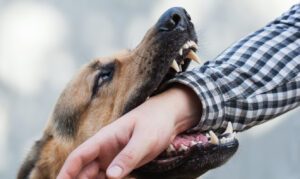
Note that there are much tighter regulations for owners of “dangerous dogs.” A dangerous dog is a classification that applies if the animal has inflicted serious injury on a person without provocation, or has been shown to aggressively bite, attack or endanger people’s safety without provocation. Keep in mind that this classification does not apply to dogs being used by law enforcement and those carrying out official duties.
Now, the process for declaring a dog a dangerous dog is legal in nature. Typically, someone alerts a dog control officer that a dog meets the classification criteria, and the officer sends notice to the owner. The state then schedules a hearing to determine if the dog is indeed dangerous. If the dog is classified as dangerous, the owner is then required to register the animal with the city and carry at least $50,000 in liability insurance.
Further, the dog must be kept within a secure enclosure and there must be warning signs posted at all entrances to the property. If the owner brings the dog on a walk, the animal must be restrained by a leash less than 6 feet long, and the dog must be muzzled.
If the animal gets loose, the owner must alert the dog control officer within 24 hours. The owner must also notify the officer of any intention to move out of the jurisdiction. If the owner fails to comply with these requirements, the dog may be confiscated and euthanized. The owners may also be fined and imprisoned, in addition to being liable for any injuries caused to a victim.
What to Do After a Dog Bite
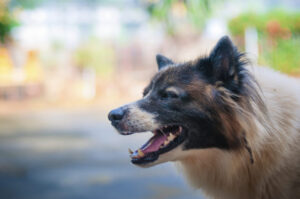
Dog bites are more common than you might think. According to the Center for Disease Control, 4.7 million people are bitten by dogs each year, 800,000 of which require medical attention. However, only 17% of dog bite victims report their injuries. What should you do if you get bitten by a dog? Here’s what you need to know.
Seek Medical Attention Immediately
It’s important to seek medical attention right away if you are bitten by a dog and the injury is serious. Symptoms such as excessive bleeding, extreme pain, and bone exposure need to be checked out immediately by a doctor. Keep in mind that the dog could have rabies, so you may be given a tetanus shot.
Be aware that diseases can spread from dog bites. For that reason, it’s good practice to follow up with your doctor if you have concerns about any of the following conditions:
- Rabies: a fatal virus that affects the brain
- Capnocytophaga bacteria: can cause illness, particularly for people with a weakened immune system
- Pasteurella: a painful red infection, may cause swollen glands and swollen joints
- MRSA: a type of staph infection that can lead to lung and urinary tract infections
- Tetanus: a toxin found in bacteria; often a problem with deep bite wounds, can cause rigid paralysis.
Seeking prompt medical care can help to preserve evidence, establish causation, and protect you from potential complications.
Apply Pressure to the Wound
If the dog bite injury is not severe, apply pressure to the wound and clean the bite area. Continue to keep an eye on it for signs of infection. If you remember, try to get the owner’s contact information and, if possible, find out the medical history of the animal. Ask if the dog has been vaccinated for rabies and if there are any other conditions you should be aware of.
Report the Dog Bite
Note, that you are required to report the attack to Animal Control. This is important because it gets the bite on record in case you need to sue the owner, and it helps protect others from getting hurt in the future. It’s also a good idea to take down the contact information of anyone who may have witnessed the attack.
Document Your Injuries
Finally, document your injuries as best you can. This would involve writing down the details of what happened while it’s in recent memory, and taking photos of your injury and anything else you think might be relevant.
What Damages Can I Get After a Dog Bite in Georgia?

Claims against owners for dog bites can lead to financial compensation in the form of money damages. This can include awards for economic damages, non-economic damages, and maybe even punitive damages. After a fatal dog attack, family members may also be able to seek money to compensate for own resulting harm.
Economic Damages
These amounts are meant to cover your economic losses, and include payments for your medical bills, such as emergency treatment, rehabilitation, and reconstructive surgery.
They might also include lost income during periods when you were unable to work due to the injury. You would also likely be able to collect payment for damage to your property, such as clothing or jewelry.
Non-Economic Damages
Note that there are also non-economic damages that may be available to you. A typical example would be pain and suffering, including physical and mental anguish. These amounts can be very fact-specific, and are often decided by a jury or in negotiations with the insurance company or the owner’s attorney.
Damages Available After a Fatal Dog Bite Injury
In the case of a fatal attack, the spouse and minor children of the victim can also be awarded damages in a wrongful death lawsuit. Typically these amounts are to compensate for income that the victim would have earned during his life. Family members may also be entitled to amounts for loss of companionship, as well as payment for medical expenses and funeral/burial costs.
Punitive Damages
Now, if you can show that the owner was either reckless or intentionally caused injury to you, you may be awarded what is known as punitive damages. Punitive damages go above and beyond the types of compensation listed above, and are meant solely to punish the wrongdoer. It’s important to note that this is a much higher standard than negligence. These types of cases can be complex, so it can be helpful to reach out to a qualified attorney for assistance.
Keep in mind that sometimes the victim and the owner can both be at fault for an attack. For example, if you were playfully roughhousing with a dog and the animal unexpectedly turned aggressive, you might be deemed partially at fault for the bite. But, this doesn’t necessarily bar your claim. In fact, you can still be awarded damages so long as you weren’t more than 50% to blame.
In cases where fault is shared, your damages will be reduced in proportion to your fault. This means that if you were found to be 10% to blame for the attack and your claim was for $100,000, the most you could be awarded in damages would be $90,000.
Call Our Atlanta Dog Bite Injury Law Firm Today
If you’ve been bitten by a dog, don’t hesitate to contact Hasner Law Injury & Workers’ Compensation Attorneys for a free consultation. It’s important not to delay – the law imposes a 2-year deadline on personal injury cases. This is known as a statute of limitations and it can prevent you from filing your claim. However, there are some exceptions to this rule, so reach out to our Atlanta dog bite lawyers even if you think you missed the deadline. We’d be happy to discuss your dog bite case today.
Atlanta Dog Bite Lawyer Testimonial

https://goo.gl/maps/wteURB69nPxtPLQHA
Atlanta Chiropractors
- Atlanta Chiropractic & Wellness Center – 608 Moreland Ave NE, Atlanta, GA 30307
- Atlanta Chiropractic Injury Center – 342 W Peachtree St NW, Atlanta, GA 30308
- Taylor Chiropractic & Wellness – 3169 Maple Dr NE, Atlanta, GA 30305
- Midtown Atlanta Chiropractic – 1708 Peachtree Rd NW UNIT 325, Atlanta, GA 30309
Our Atlanta, GA personal injury law firm also provides:
Atlanta Hospitals
- Wellstar Windy Hill Hospita – 2540 Windy Hill Rd SE, Marietta, GA 30067, United States
- Piedmont Atlanta Hospital – 275 Collier Rd NW UNIT 450, Atlanta, GA 30309, United States
- Wellstar LTC on Windy Hill – Smyrna, GA 30080, United States
- Fresenius Medical Care at Emory Adventist Hosp Acut – 3949 S Cobb Dr SE, Smyrna, GA 30080, United States
- Northside Hospital Atlanta – 1000 Johnson Ferry Rd NE, Atlanta, GA 30342, United States
- Aviation Accident Lawyers in Atlanta, GA
- Bicycle Accident Lawyers in Atlanta, GA
- Brain Injury Lawyers in Atlanta, GA
- Bus Accident Lawyers in Atlanta, GA
- Car Accident Lawyers in Atlanta, GA
- Construction Accident Attorneys in Atlanta, GA
- Atlanta, GA Dog Bite Lawyers
- Medical Malpractice Lawyers in Atlanta, GA
- Motorcycle Accident Lawyers in Atlanta, GA
- Pedestrian Accident Attorneys in Atlanta, GA
- Premises Liability Attorneys in Atlanta, GA
- Truck Accident Lawyers in Atlanta, GA
- Atlanta, GA Wrongful Death Lawyers
*Disclaimer – we do not endorse these companies or profit from having them listed on our website.
Additional Dog Bite Articles & Information
What Happens If a Dog Bites Someone on Your Property in Atlanta, GA?




